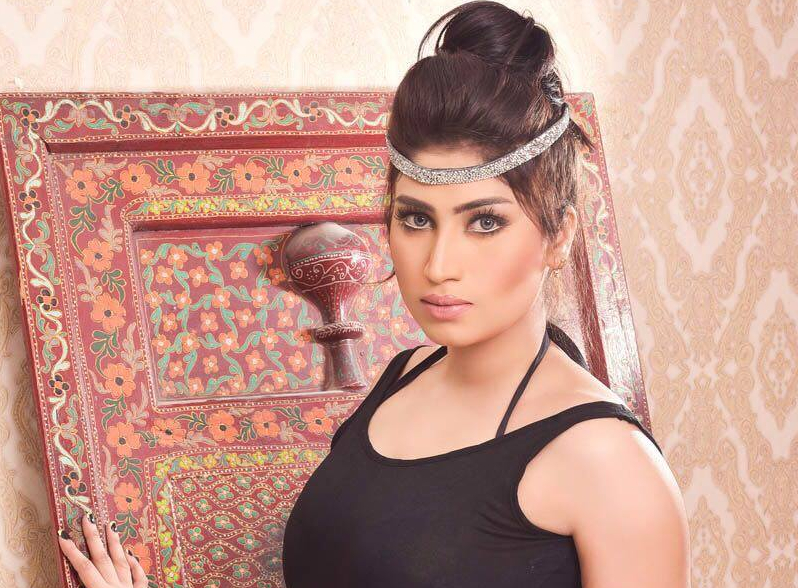Qandeel Baloch, Pakistan’s contentious social media celebrity, model, and feminist activist, was brutally strangled to death by her brother Waseem Azeem, who confessed that he choked her in an “honor” killing — the killing of a relative, especially a girl or woman, who is perceived to have brought shame to the family. Waseem Azeem shamelessly says, “I am proud of what I did. . . .She was bringing dishonor to our family.”
The 26-year-old woman was killed for bringing “dishonor” to her family. Now, the real question is: what shame could she possibly bring that could have justified her brutal death?
To start with, Baloch, whose real name was Fouzia Azeem, came from a politically conservative family, just like any ordinary family who holds to traditional norms in Pakistan.
But did she hold to the traditional way of thinking — the conservative norms?
No, she didn’t.
When she rose to prominence, she became Pakistan’s most well-known internet celebrity, who was both lauded and criticized for the contents of her posts and videos on her social media accounts. The contents of her posts were the same as any other internet celebrity. She posted beauty-related content and regular selfies, but it was said that she exceeded her boundaries of what was considered tolerable for women in Pakistan. She would post pictures that were considered to be “unacceptable” and “bold” like wearing “revealing” clothes. She also posted videos that would cause absolute uproar and controversy, and fearlessly encouraged people to abandon old practices and traditions.
Feminists acclaimed Qandeel for her confidence in doing and wearing what she wanted. Simultaneously, she was reviled by others for being “bold” and “immodest.”
On her Facebook account, which has nearly 800,000 followers, she posted: “I am trying to change the typical orthodox mindset of people who don’t wanna come out of their shells of false beliefs and old practices.” In addition, she had released a music video on YouTube called “Ban,” which criticized some of the confinements that she had been subjected to.
Baloch was audacious and surprising. In a patriarchal country like Pakistan, women are not expected to speak their minds or question anything — they are merely born to be taught to obey and become docile. Baloch did the contradictory. She refused to cling to society’s confinement to women and demanded a change in the male-dominant society she was living in.
Baloch, who rose to prominence by herself, was the epitome of a wonderful feminist. Standing for women’s rights, she also challenged the patriarchy of her country. Shortly before her death, she remarked, “I am a modern day feminist. I believe in equality. I need not to choose what type of women should be. I don’t think there is any need to label ourselves just for sake of society.”
Frequently receiving misogynist and sexist comments hadn’t stopped her from standing for what she believed in.
For her undeniable confidence and personality, some people compared her to Kim Kardashian. However, she was more than that. Fasi Zaka, a radio show host, said: “. . .What was different about her is that she was from a poor background. She did all this on her own. She is much more than Kim Kardashian, she went against the norms of society — and went on do what she wanted, on her own terms.”
Her brother said unapologetically that he killed her for bringing dishonor. Was the dishonor about defending women’s rights, and standing for what Baloch believed in, and wearing what she pleased? Was this a valid reason to kill this inspiring woman?
She was a strong, independent woman who just had one goal: to inspire women who have been treated badly and dominated by society. One of Pakistan’s leading newspapers had written that Baloch’s brutal death highlighted the misogyny and sexism that women are still enduring in Pakistan.
The aforementioned statement is unfortunately very true. Women there are still kept back and unable to demand their basic rights — receiving an education, ending child marriage, etc. — without getting threatened or killed. Women will be accepted as long as they are sex objects, but the moment they speak up about their fundamental rights, they are to be killed.
As Sharmeen Obaid-Chinoy, an Oscar-winning filmmaker had said, honor killings have become an “epidemic.” To prove her point, in 2015, solely in Pakistan, there were 933 honor killings, according to the official figures of the Pakistani government.
Indubitably, change needs to happen. Pakistan’s prime minister Nawaz Sharif enunciated: “There is no honor in honor killing; in fact, there can be nothing more degrading than to engage in brutal murder and to refer to it as honor.”
Though it was only the beginning of Baloch’s journey, she had inspired young women, not only from Pakistan, but also in different places around the world. The inspiring Qandeel Baloch, who was a model, actress, social media star, and feminist activist, will always be remembered for her absolute audacity and her strong ambition to change the lives of women in Pakistan.
She will always be remembered as a hero — a feminist hero.
Photo: Qandeel Baloch Official


Continue writing !!!